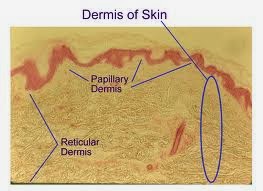This is not just the Most common cancer type of early skin cancer,
however the most common cancer type in people. Something like 8 out of 10 early skin cancer are basal unit carcinomas (likewise called basal cell cancers).
They generally improve on sun-uncovered territories, particularly the head and
neck. Basal cell carcinoma was once discovered almost fully in mid life or more
advanced in year’s individuals. Right away it is likewise being seen in more
youthful individuals, presumably in light of the fact that they are investing
more of a chance out in the sun. The point when seen under a magnifying lens,
basal unit carcinomas impart characteristics to the phones in the most minimal
layer of the epidermis, called the basal cell layer.
These cancers have a tendency to develop gradually. It is exceptionally extraordinary for a basal unit cancer to spread to close-by lymph hubs or to far off parts of the figure. Anyway if a basal cell cancer is left untreated, it can develop into adjacent territories and attack the skeletal substance or different tissues underneath the skin. After medication, basal unit carcinoma can repeat (return) in the same put on the skin. Individuals who have had basal cell cancers are likewise less averse to get new ones somewhere else on the skin. The same amount as 50% of the individuals who are diagnosed with one basal unit cancer will improve another early skin cancer inside 5 years. To comprehend basal and squamous cell skin cancers, it serves to ponder the ordinary structure and capacity of the skin.
These cancers have a tendency to develop gradually. It is exceptionally extraordinary for a basal unit cancer to spread to close-by lymph hubs or to far off parts of the figure. Anyway if a basal cell cancer is left untreated, it can develop into adjacent territories and attack the skeletal substance or different tissues underneath the skin. After medication, basal unit carcinoma can repeat (return) in the same put on the skin. Individuals who have had basal cell cancers are likewise less averse to get new ones somewhere else on the skin. The same amount as 50% of the individuals who are diagnosed with one basal unit cancer will improve another early skin cancer inside 5 years. To comprehend basal and squamous cell skin cancers, it serves to ponder the ordinary structure and capacity of the skin.
Normal skin
- covers the inner organs and helps secure them from damage
- serves as an obstruction to germs, for example microbes
- prevents the misfortune of a lot of water and different liquids
- helps control form temperature
- protects whatever is left of the form from ultraviolet (UV) flashes
- helps the form make vitamin D
Epidermis
The top layer of skin is the epidermis. The epidermis is
dainty, averaging just 0.2 millimeters thick (something like 1/100 of an inch).
It ensures the deeper layers of skin and the organs of the from nature's
turf. Keratinocytes are the primary cell sort of the epidermis. These phones
make an imperative protein called keratin that helps the skin secure whatever
remains of the form. The outermost part of the epidermis is known as the
stratum corneum. It is made out of dead keratinocytes that are consistently
shed as new ones shape. The phones in this layer are called squamous units as a
result of their level shape. Living squamous cells are discovered just
underneath the stratum corneum.
These units have moved here from the most minimal part of the epidermis, the basal layer. The phones of the basal layer, called basal units, consistently partition to structure new keratinocytes. These supplant the more senior keratinocytes that wear off the skin's surface. Cells called melanocytes are likewise discovered in the epidermis. These skin cells make a tan shade called melanin. Melanin gives the skin its tan or tan color. It secures the deeper layers of the skin from a percentage of the destructive impacts of the sun. The point when skin is presented to the sun, melanocytes make a greater amount of the color, making the skin tan or obscure. The epidermis is divided from the deeper layers of skin by the wine cellar layer. This is an imperative structure in light of the fact that when an early skin cancer comes to be more progressed, it usually develops through this hindrance and into the deeper layers.
These units have moved here from the most minimal part of the epidermis, the basal layer. The phones of the basal layer, called basal units, consistently partition to structure new keratinocytes. These supplant the more senior keratinocytes that wear off the skin's surface. Cells called melanocytes are likewise discovered in the epidermis. These skin cells make a tan shade called melanin. Melanin gives the skin its tan or tan color. It secures the deeper layers of the skin from a percentage of the destructive impacts of the sun. The point when skin is presented to the sun, melanocytes make a greater amount of the color, making the skin tan or obscure. The epidermis is divided from the deeper layers of skin by the wine cellar layer. This is an imperative structure in light of the fact that when an early skin cancer comes to be more progressed, it usually develops through this hindrance and into the deeper layers.
Dermis
The center layer of the skin is known as the dermis. The
dermis is much thicker than the epidermis. It holds hair follicles, sweat
organs, veins, and nerves that are held set up by a protein called collagen.
Collagen, made by cells called fibroblasts, gives the skin its flexibility and
quality.






No comments:
Post a Comment